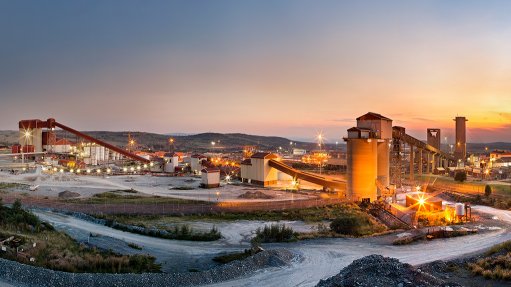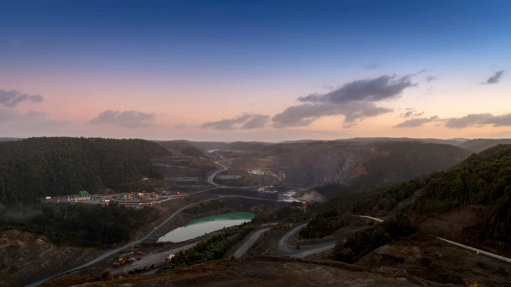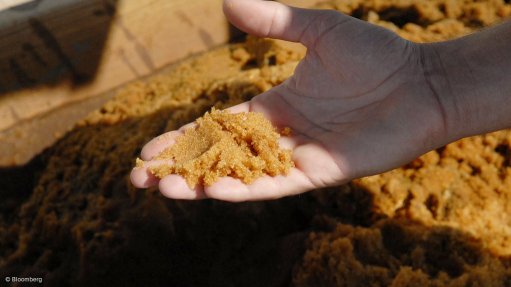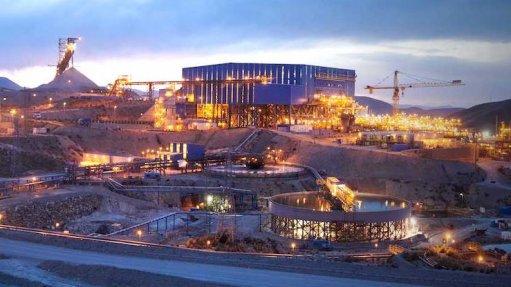Marikana tragedy has changed industry forever – consultancy
Natural resources and development solutions provider SRK Consulting South Africa chairperson Roger Dixon tells Mining Weekly that the breakdown of the central bargaining system in the South African mining industry has changed the industry and that of consulting engineers in mining forever.
“The breakdown of the central bargaining system between the unions, workers and mining companies after the Marikana tragedy has had, and will continue to have, a significant impact on the way business is done in the industry. The problem, which started in the platinum industry, quickly spread to the gold and coal industries.
“I believe one of the basic reasons for this is that the unions have become com- placent about and estranged from the fight for workers’ rights since the early 1980s, when Cyril Ramaphosa and Gwede Mantashe were leaders of the National Union of Mineworkers,” he says.
As a result, Dixon says, many mining companies have not been making the necessary changes to advance workers’ rights, with less pressure coming from unions.
“The industry is facing the issue of mechanisation, which is a difficult subject to deal with. The companies have not been pushing hard enough for mechanisation and it is going to become increasingly challenging to discuss this with unions that are desperately trying to protect jobs,” he explains.
However, Dixon notes that there are opportunities in the current environment for consulting companies that have the capacity and a positive record in the marketplace.
“One’s business will benefit from the business opportunities should one be able to take advantage of them. For exam- ple, SRK Consulting is proceeding with feasibility studies in the platinum industry, where mining companies have decided to proceed with expansions in platinum,” he says.
Going forward, possible key growth areas and markets for the company include the coal sector, in South Africa, Botswana and Mozambique; zinc, in Namibia; the iron-ore and gold sectors in sub-Saharan Africa; and oil and gas discoveries in East African countries, such as Kenya, Tanzania and Mozambique, which the company says will also drive economic growth in the areas.
“Rail is also a significant growth market for us going forward, as logistics are a part of every project we carry out and we expect this to develop particularly in African countries, such as Mozambique and Botswana” says Dixon.
Last month, Engineering News reported that the provisional coal terminal at the Beira port, in Mozambique, is expected to handle six-million tons of coal for export this year, which will be the provisional terminal’s maximum capacity. This quantity will probably comprise 4.5- million tons from Brazilian miner Vale’s Moatize mine and 1.5-million tons from Anglo-Australian group Rio Tinto’s Benga operation, which lie near each other in Mozambique’s Tete province.
According to the Beira bureau of Mozambique newspaper Notícias, the terminal handled 2.5-million tons of coal from Moatize last year.
On February 28, the Mozambique State-owned railway company, CFM, reopened the Sena rail line, which links Tete to Beira and is used to convey coal to the coast for export. The 575-km-long line had to be closed because of serious damage caused by torrential rains, which washed away three culverts and about 800 m of track and ballast. CFM suffered damage estimated at $10-million, including lost-traffic revenues.
Since the Sena line was reopened, it has experienced average daily traffic of between three and five trains, each carrying 2 700 t of coal, with two locomotives and 42 wagons. In the last week or so of March, four bulk carriers of about 35 000 gross tons each called at Beira to load coal.
Engineering News also reported that Mozambique Transport and Communications Minister Paulo Zucula confirmed that government desired CFM to partner with the mining and hydrocarbons companies operating in the country regarding the transport infrastructure they require, including railways, ports, terminals and associated infrastructure. This reflected government’s desire to have a share in all the big projects under way or planned in Mozambique to protect the country’s national interest. Zucula indicated that, at the time, there were 12 such “anchor projects” that focused on coal, gas and oil.
Additionally, South African State-owned transport uti- lity Transnet Freight Rail is in the process of expanding its coal export channel, which links the coalfields of Mpumalanga and the Waterberg, in Limpopo, with markets in Europe and Asia by increasing initial capacity of the corridor to 81-million tons a year and thereafter to 97.5-million tons a year.
Tenders for a prefeasibility study to increase capacity to 97.5-million tons a year will be issued in the near future to confirm the expansionary and sustaining investments.
Future Growth
Going forward, SRK Consulting is looking to open more regional offices on the continent.
“It is a growing trend that African countries want businesses that carry out work in these countries to have local offices and provide opportunities for local people. They want to develop their own economies and we believe that is fair.
“The opening of our office in Cameroon is imminent,” says Dixon, adding that the office will have a local country manager and a local environmental scientist.
Comments
Press Office
Announcements
What's On
Subscribe to improve your user experience...
Option 1 (equivalent of R125 a month):
Receive a weekly copy of Creamer Media's Engineering News & Mining Weekly magazine
(print copy for those in South Africa and e-magazine for those outside of South Africa)
Receive daily email newsletters
Access to full search results
Access archive of magazine back copies
Access to Projects in Progress
Access to ONE Research Report of your choice in PDF format
Option 2 (equivalent of R375 a month):
All benefits from Option 1
PLUS
Access to Creamer Media's Research Channel Africa for ALL Research Reports, in PDF format, on various industrial and mining sectors
including Electricity; Water; Energy Transition; Hydrogen; Roads, Rail and Ports; Coal; Gold; Platinum; Battery Metals; etc.
Already a subscriber?
Forgotten your password?
Receive weekly copy of Creamer Media's Engineering News & Mining Weekly magazine (print copy for those in South Africa and e-magazine for those outside of South Africa)
➕
Recieve daily email newsletters
➕
Access to full search results
➕
Access archive of magazine back copies
➕
Access to Projects in Progress
➕
Access to ONE Research Report of your choice in PDF format
RESEARCH CHANNEL AFRICA
R4500 (equivalent of R375 a month)
SUBSCRIBEAll benefits from Option 1
➕
Access to Creamer Media's Research Channel Africa for ALL Research Reports on various industrial and mining sectors, in PDF format, including on:
Electricity
➕
Water
➕
Energy Transition
➕
Hydrogen
➕
Roads, Rail and Ports
➕
Coal
➕
Gold
➕
Platinum
➕
Battery Metals
➕
etc.
Receive all benefits from Option 1 or Option 2 delivered to numerous people at your company
➕
Multiple User names and Passwords for simultaneous log-ins
➕
Intranet integration access to all in your organisation


















